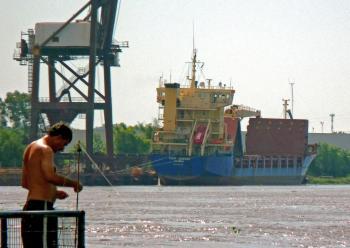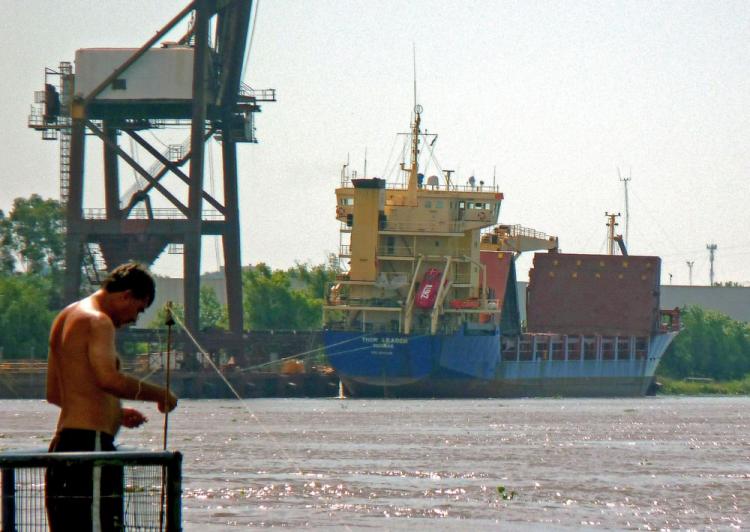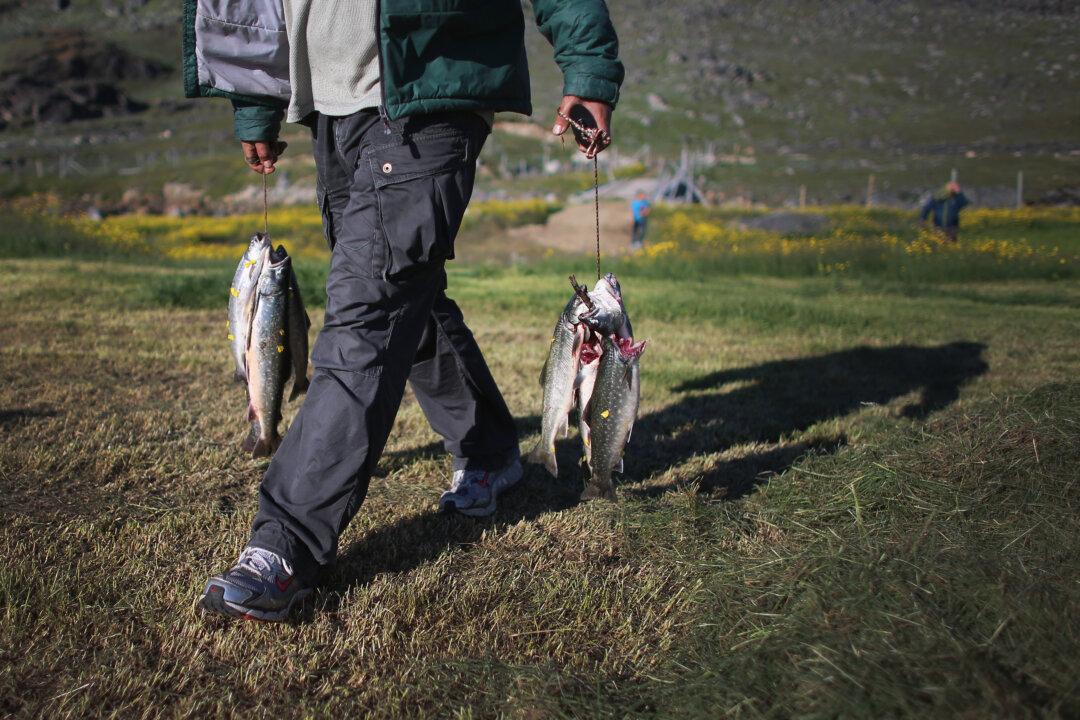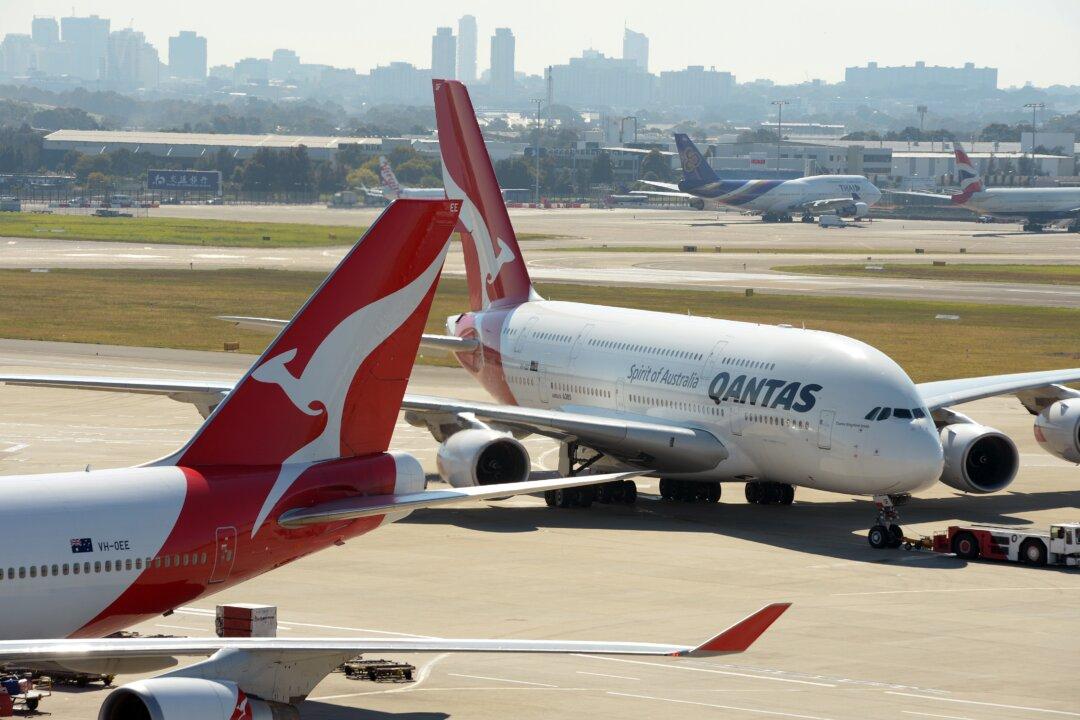Falklands’ Oil Sparks New U.K.—Argentine Dispute
An oil rig that had been towed 8,000 miles from Scotland to the South Atlantic was at the center of a diplomatic crisis this week.

The Thor Leader is seen docked with its cargo deck open at Campana harbor, some 44 miles north-east of Buenos Aires, on Feb. 11. Tensions between Argentina and Britain rose Thursday after Buenos Aires blocked a shipment of pipes it said was bound for the Falklands archipelago. Britain plans to begin drilling for oil in the disputed territory that the two countries went to war over in 1982. Martin Seguin/AFP/Getty Images
|Updated:





